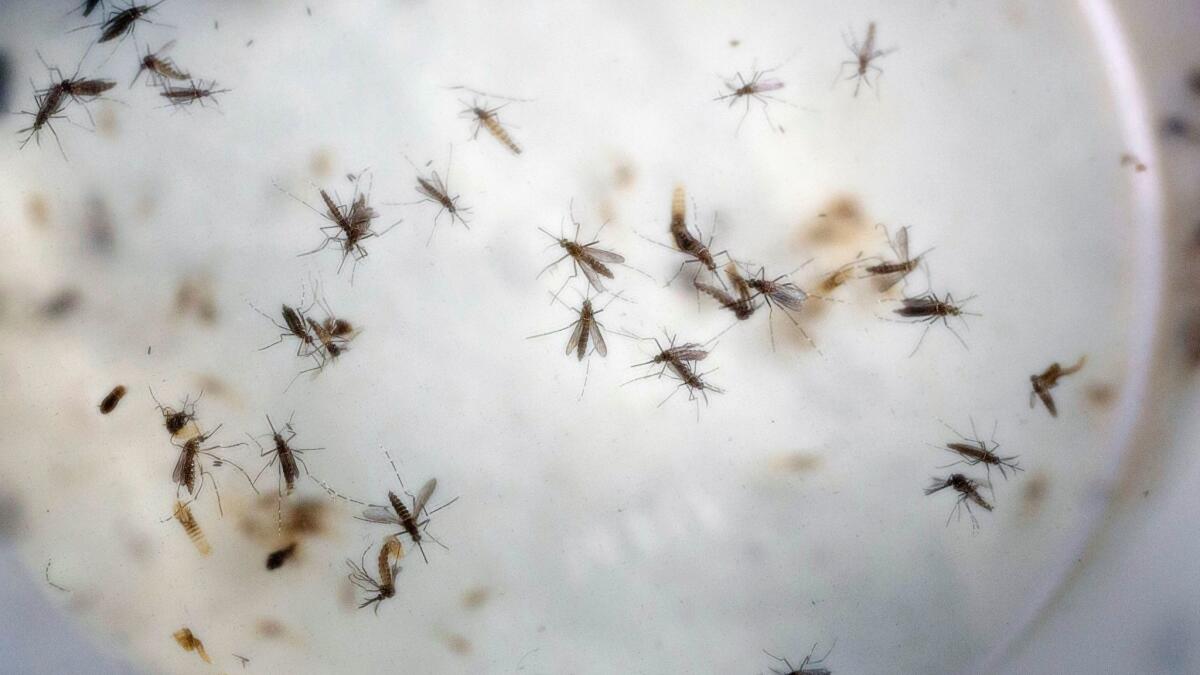Experimental Zika vaccine looks promising in animal tests

An experimental vaccine has been shown to provide protection against the Zika virus in mice, and to mobilize an immune response against Zika in monkeys.
The genetically engineered vaccine candidate includes genes that teach the immune system to recognize Zika by showing it several of the virus’ surface proteins.
Scientists are scrambling to find ways to protect large populations against Zika, a member of the flavivirus family that is the cause of severe brain abnormalities in babies born to women who were infected during their pregnancies. Infection with the virus generally results in mild illness at worst, but is also linked in rare cases to Guillain-Barre syndrome, a dangerous and sometimes fatal inflammation of the nervous system.
Healthy mice, as well as mice selectively bred to be more vulnerable to the Zika virus, responded to the experimental vaccine by producing immune T-cells that would specifically target circulating Zika virus, and antibodies against the virus. After immunization, none of the mice bred to be more vulnerable to the vaccine died or lost weight when they were infected with Zika.
Five rhesus macaque monkeys administered the vaccine had the same promising responses.
The newest vaccine candidate to show promise is one of roughly 40 under development. It was developed by scientists at the Wistar Institute in Philadelphia and Canada’s Public Health Agency. The results of this early testing were published Thursday in the Nature journal npj Vaccines.
Some of those vaccine candidates are already entering into human trials.
On Tuesday, 75 healthy adults rolled up their sleeves just outside Washington, D.C., to be vaccinated with a Zika vaccine developed earlier this year by scientists at the Walter Reed Army Institute of Research. That trial will begin to flesh out the safety of that vaccine, which uses an inactivated flavivirus to teach the immune system. The Walter Reed researchers modeled their vaccine candidate after the institute’s Japanese encephalitis vaccine, licensed in 2009.
Follow me on Twitter @LATMelissaHealy and “like” Los Angeles Times Science & Health on Facebook.
MORE IN SCIENCE
Teens who vape are more likely to become teens who smoke — and smoke more often
Thanks to these bonobos, you can stop blaming your computer and iPhone for ruining your eyes




